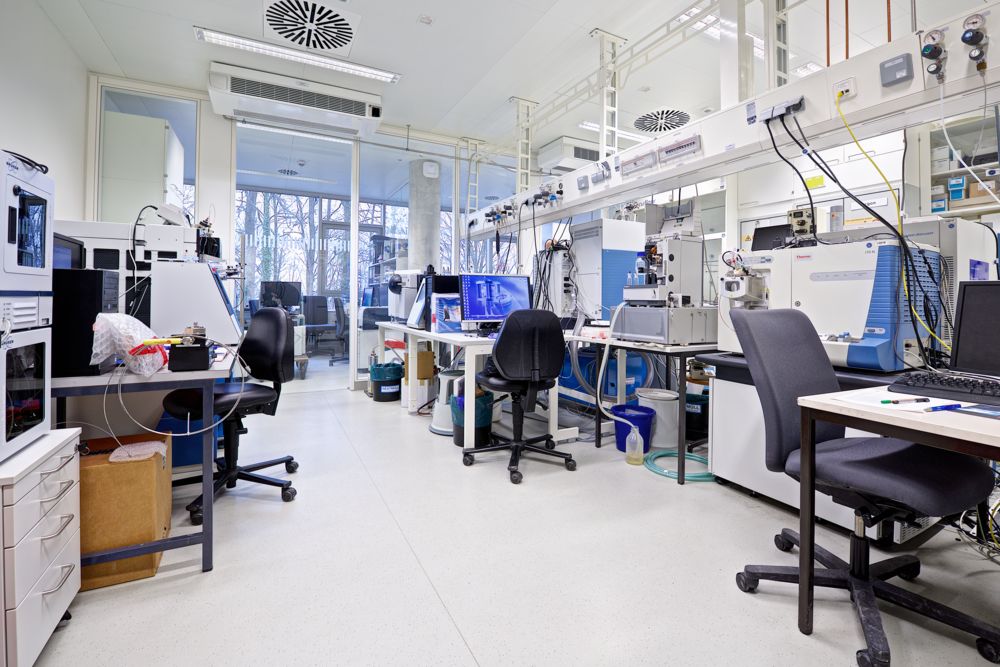
The role of LRRK2 in Parkinson’s disease
Researchers in a German-American project partnership with the participation of the University of Konstanz will investigate the most frequently mutated gene in the hereditary form of Parkinson’s disease – the project is funded by the US-American initiative “Aligning Science Across Parkinson’s” with 7.2 million dollars
A mutation in the enzyme LRRK2 plays a significant role in five to ten percent of hereditary Morbus Parkinson. Five research teams from the University of California in San Diego, the Goethe University Frankfurt and the University of Konstanz want to understand how mutations in the LRRK2 gene trigger Parkinson’s disease and to identify potential target sites for future drug treatment. The project is spearheaded by Professor Samara Reck-Peterson from the University of California in San Diego. At the University of Konstanz, a team around Professor Florian Stengel at the Department of Biology will be responsible for identifying the cellular interaction partners of LRRK2. The US-American initiative “Aligning Science Across Parkinson’s” supports this project with around 6 million euros (7.2 million dollars).
LRRK2- enzyme blocks transport processes in cells
In the early 2000s, it was discovered that the enzyme LRRK2 is mutated in many Parkinson’s patients and plays a significant role in five to ten percent of hereditary Morbus Parkinson and between one and five percent of its spontaneous form. LRRK2 is a phosphatase and is far more active than normal in the brain cells of Parkinson’s patients, leading to blocked transport processes in the cell. Many inhibitors against the LRRK2 enzyme have already been tested in the past, but they are not sufficiently effective or their side-effects are too severe.
Funded by the “Aligning Science Across Parkinson’s”-Initiative
The Aligning Science Across Parkinson’s Initiative, implemented through the Michael J. Fox Foundation, whose role is the support of basic research, financially supports the project. Around 1 million euros will fund research at the University of Konstanz.
The team around co-project manager Florian Stengel, Professor for Cellular Proteostasis at the University of Konstanz, aims to identify the cellular interaction partners of LRRK2 using mass spectrometry-based proteomics. The biologist explains: “In this way, we will be able to complete our picture of the cellular role of LRRK2 and hopefully contribute to the development of a drug against this form of Morbus Parkinson in the future.”
At Goethe University Frankfurt, co-project manager Stefan Knapp, Professor for Pharmaceutical Chemistry, will develop chemical probes to localize and study LRRK2 in cells and produce recombinant LRRK2 variants that will help to understand their three-dimensional structure. Stefan Knapp: “By comparing LRRK2 mutations in Parkinson’s patients with normal LRRK2, we want to find out which tasks LRRK2 fulfils in the cell, how the enzyme moves and changes within the cell, and how the mutated form of LRRK2 contributes to nerve cells dying off”.
Key facts:
- German-American project partnership with the participation of the University of Konstanz investigates the most frequently mutated gene in the hereditary form of Parkinson’s disease
- Basis for the development of a specific drug
- The US-American “Aligning Science Across Parkinson’s” (ASAP)-Initiative funds the project with 7.2 million dollars, which corresponds to around 6.1 million euros
- Around 1 million euros for research at the University of Konstanz
- Co-project manager at the University of Konstanz is Florian Stengel, Professor for Cellular Proteostasis at the Department of Biology
